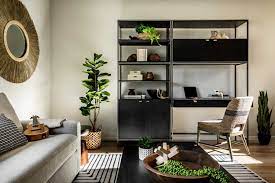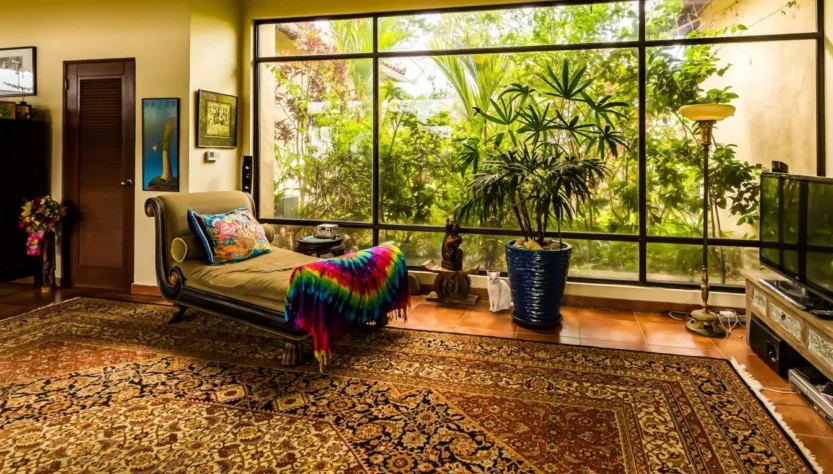
A tidy home (Clutter free) is crucial for people of all ages, but it’s especially vital as we grow older. When we retire, we tend to spend more time at home, so having an organized, clutter-free space brings many benefits.
First, less clutter means fewer tripping hazards. As we age, our balance isn’t what it used to be, so removing unnecessary objects from walkways and stairs prevents dangerous falls.
Second, a clutter-free home reduces stress and frustration. Scrambling to find things in a messy house can be really aggravating. A neat, organized home makes it easy to locate your stuff.
Third, having fewer things makes cleaning a breeze. You won’t have as much to dust and maintain, so keeping your home clean won’t be a major effort.
In short, decluttering is crucial for older adults because it keeps them safe, reduces stress, and makes housework simpler. Plus, a clutter-free home tells the world you value order in your life.
Remember, your eyes are always taking in what they see, and your brain is constantly processing it. A cluttered home can wear you out. It also makes regular cleaning a challenge, which leads to even more clutter. So, keep it tidy for a happier, healthier retirement.
Here are a few things you can do.
Getting started with identifying and removing clutter
Start by looking around and figuring out which areas are cluttered. That’s the first step – identifying the trouble spots. Once you’ve done that, move on to prioritizing which rooms or zones need your attention most.
There may be many things that you need when you’re working but you don’t need when you have retired.
For each item, decide if you want to keep it, donate it, or just toss it out. No need for long explanations, just go with your gut.
Renowned decluttering expert Mary Kondo suggests that hold the object in your hand and ask yourself, “Does this objective give me joy?”. If it does, keep it, if it doesn’t, let it go.
Parting with sentimental stuff can be difficult. Remember the ultimate choice is yours. Keep the things that really mean something to you. The rest? Well, it might be time to let go.
It’s not just memorabilia or children’s toys that may be a big part of your clutter. What about your wardrobe? Of course, keep what you love and wear often. Aside from winter and summer clothes, anything you haven’t worn for a year? Perhaps you don’t need it.
Embrace minimalism. 80% of the decoration stuff that you may have put here and there doesn’t even decorate. It simply lies there. Consider getting rid of it.
Go with multipurpose furniture and gadgets
What about furniture? Are there certain furniture items that may have multiple uses? Go for a sofa that can also be used as a bed. Go for a coffee table that also has storage space.
Opt for furniture pieces with built-in shelves, cabinets and hidden compartments. You can get foldable chairs and tables that you can put aside when not needed – although you may think that it may be an extreme approach. Many innovative furniture choices are available these days. Wall mounted shelves and tall bookcases are available that will help you save horizontal space.
Build habits that help you create a clutter-free environment
How do you accumulate clutter?
Mostly when you buy things indiscriminately without getting rid of items that you already have. Therefore, after your retirement, it is important to establish daily habits that help you maintain a clutter-free environment.
Declutter regularly. Give 10 minutes every day to decluttering. You will be surprised how much you can achieve in just 10 minutes. Consistency is the key.
You can also dedicate certain days to cleaning.
Develop mindful shopping habits. Before making a purchase, ask yourself, do you really need that thing? How much space is it going to occupy? Avoid impulse purchases. This will not only save you money, but will also keep your house free of clutter.
Remember that keeping your house clutter free is a conscious choice. If you are not aware of the accumulating clutter, it is going to accumulate.
Picture this: if you leave your door open, dust and debris from the outside will inevitably find their way in. Similarly, if you don’t pay attention to what enters your home, clutter will surely take over your living space.
Clutter doesn’t just happen overnight. It gradually piles up. In most of the cases it goes unnoticed until it is practically impossible to move around. That’s why you need to be proactive. Remain conscious. Incorporate habits into your daily living that stop you from building clutter in your house.
For understanding how a cluttered home might lead to falls Read: Elderly falls – how to reduce the risks

